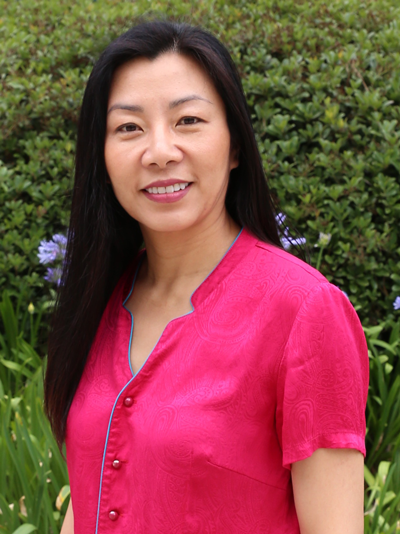UCI Environmental Engineers Work to Detect Viruses in Wastewater

Aug. 19, 2021 - UC Irvine environmental engineers are leading a cross-regional, multilaboratory effort to find the best virus monitoring methods in wastewaters that are treated for reuse. The team will develop standard operational protocols that can be adopted by water utilities across the country. Led by Sunny Jiang, professor and chair of the Samueli School Department of Civil and Environmental Engineering, the research is funded by a $1.24 million award from the Environmental Protection Agency.
Jiang will collaborate with colleagues from Florida, Louisiana, Utah, California and Hawaii to identify a suite of viral pathogens and surrogates and determine the detection methods that best serve as indicators of viral risk in water intended for reuse. The researchers will compare the methods from different labs in order to develop the protocols, then apply them to samples collected from wastewater reclamation plants across the U.S., from Miami to Hawaii, during different seasons and treatment processes.
“Wastewater reclamation and reuse are important methods for us to meet society’s ever-increasing water demands,” said Jiang. “Our goal with this project is to address public health concerns about human viral pathogens in treated wastewater for reuse across the United States.”
Jiang will work with UCI co-principal investigators Diego Rosso, professor of civil and environmental engineering, and Katrine Whiteson, associate professor of molecular biology and biochemistry. The team will experiment with both culture-based infectivity assay and molecular biology methods for detecting a number of viral pathogens and surrogates, including enterovirus, norovirus and adenovirus. Once the protocols are tested, the team will develop artificial neural network models to help predict infectious viruses and then integrate the outcomes from the cross-regional and multilaboratory study into quantitative microbial risk assessment models that can estimate health risks.
Jiang has spent more than 30 years detecting and tracking bacteria and viruses that find their way into our water as well as contributing to engineering water treatment processes that protect human health. Her group pioneered the development of a molecular detection system for rapid human virus identification in water and contributed to the U.S. EPA’s policy decision on water quality and human health protection in water reuse and water recreation.
This is the fourth grant Jiang has secured for virus research since the start of the COVID-19 pandemic. The first was from the National Science Foundation RAPID program ($175,000) to investigate risk of aerosol transmission of SARS-CoV-2 from human wastewater, such as toilet flushing, and other environmental pathways. Her team was the recipient of a Water Research Foundation/Gates Foundation joint award ($300,000) to use wastewater surveillance as a tool to track the community level of COVID-19 and viral mutations. The third award was made by the Bureau of Reclamation ($440,000) to support the development of a real-time pathogen sensor for wastewater reuse. The new EPA project connects academic researchers from eight different institutions and industrial partners from wastewater utilities to share experiences and viewpoints in wastewater reuse and viral risk.
“These research projects not only support the short-term responses to understanding and remediating the spread of viruses including SARS-CoV-2 among the communities, but the outcomes will have broad impact on managing water and human health,” said Jiang.
– Lori Brandt
